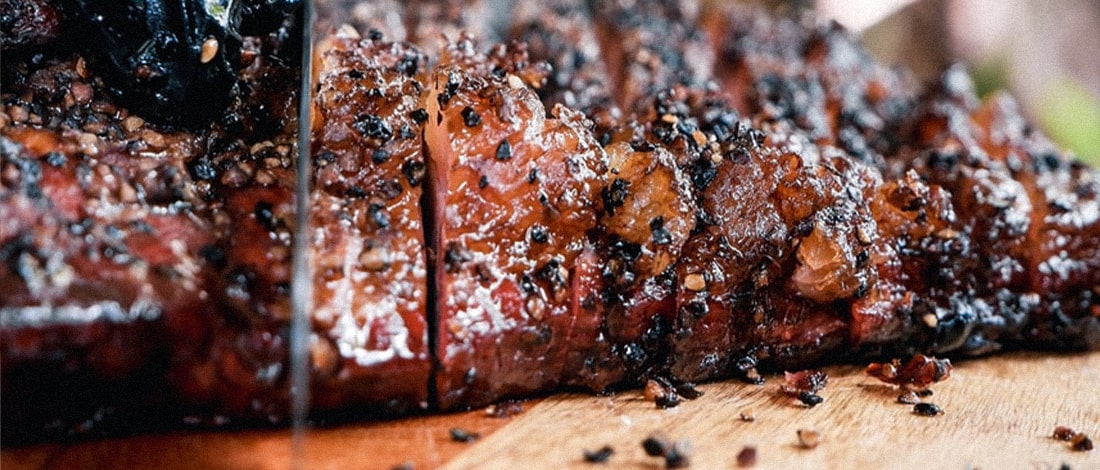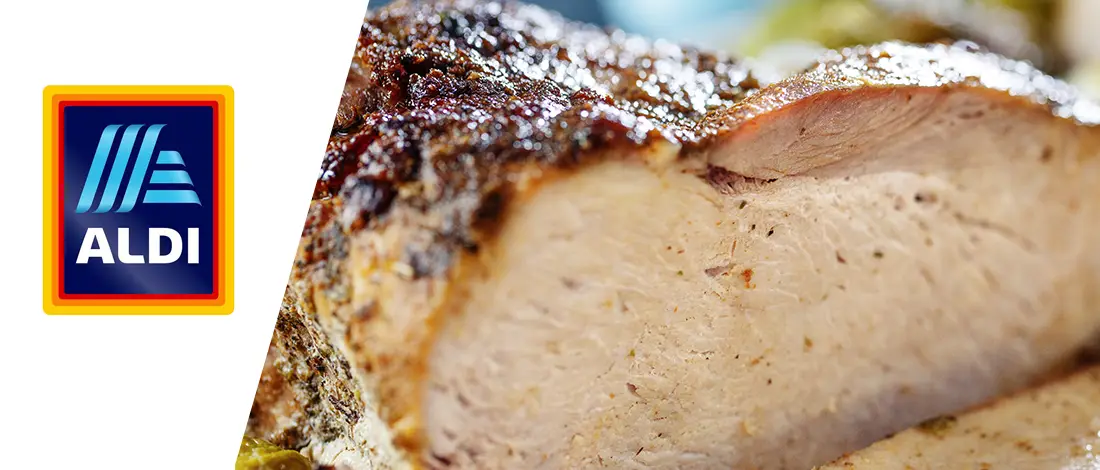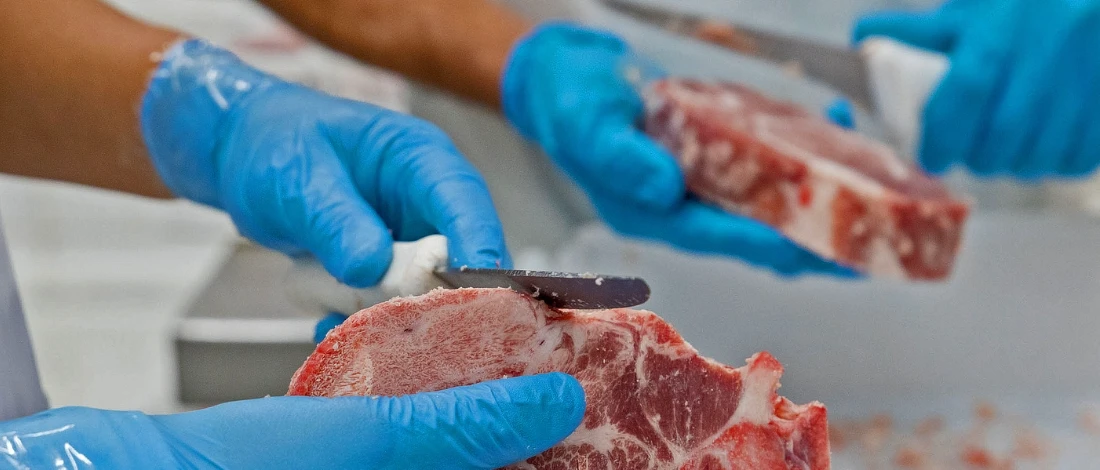As a meat lover, I have certainly eaten my fair share of processed meats in my lifetime. Items like hot dogs, ham, bacon, and even corned beef have always been staples in my diet.
But this leads to the question of what exactly makes for processed meat. I have done the research and had a lengthy conversation with my dietician so that I can provide the essential information about these foods.
Here are my discoveries.
Quick Summary
- Meat processing is the process of transforming a raw piece of protein into a more shelf-stable version.
- You can process meat through various methods, such as smoking or adding chemical preservatives.
- Processed meats like beef jerky, cured bacon, cold cuts, and sausages raise the health risks of cancer and heart disease.
What is Processed Meat?
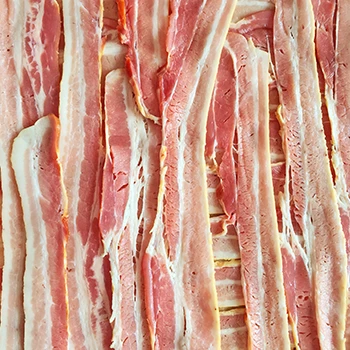
Processed meat is any meat that has been altered in terms of its structure, looks, and taste to achieve a different taste or a longer shelf-life.
When we consider processed meat products, we are usually thinking about some preservatives being added to extend the shelf-life. This concept has been around for centuries, with the first recorded examples occurring in ancient Egypt [1].
There is a wide variety of methods that can process meat. Generally, there are two major categories of processing: physical and chemical.
Physical processing methods include activities like grinding, chopping, mincing, or slicing simply change the texture or shape of the food but do not add to the shelf life.
This is not what we are referring to when talking about processed meat.
On the other hand, chemical processing protects the meat at a molecular level. This can be done through salting, fermentation, curing, smoking, or adding celery powder and other chemicals that act as preservatives and add flavor.
Also Read: What Is Conch Meat?
Examples of Processed Meat
The most common types of meats that are processed are pork, beef, and chicken.
However, you can process almost any animal protein, including lamb, turkey, duck, and fish. Additionally, you can also process animal by-products like offal or blood.
Some of the most popular processed meats include:
- Pork or turkey bacon
- Ham and other salted meat
- Sausage
- Pepperoni
- Beef jerky and other dried meat
- Hot dogs
- Bratwurst
- Salami and other cured meats
- Chicken nuggets
- Corned beef
- Pastrami
- Canned meat
- Other smoked meat
These foods make up some of the most-eaten items in the United States. In 2016, the average American consumed nearly four ounces of beef, chicken, and pork daily [2]. And much of that was processed before consumption.
Also Read: What Is Spam Meat?
The Benefits of Processed Meat
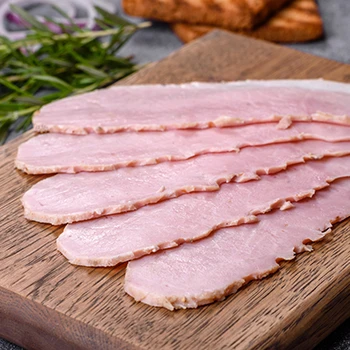
Processed meat is ubiquitous in the American diet, but that doesn't mean it's bad for you. In fact, there are some benefits to eating processed meats that you may not be aware of.
One of the main benefits of processed meat consumption is that it is an excellent source of protein. Protein is an essential macronutrient that is critical for muscle growth and repair, as well as other functions in the human body.
Another benefit is that it often does not require cooking. This can be a time saver when you are short on time or don't feel like cooking a meal from scratch.
Additionally, processed meats are often seasoned and flavored, which can add to the overall enjoyment of the food.
The Problems with Processed Meat

Of course, some public health risks are also associated with consuming processed meat.
The fundamental problem with diets high in this food is that they are full of fat, salt, and calories. This is linked to chronic diseases and health problems like obesity, heart disease, and high blood pressure [3].
Unfortunately, the studies on this phenomenon have poorly differentiated other critical factors like the type of meat, cooking methods, regular consumption of other foods, and other lifestyle choices.
Processed foods are also often treated with chemicals that can form carcinogens when they come in contact with high temperatures during cooking.
These include N-nitroso compounds, polycyclic aromatic hydrocarbons, and heterocyclic amines.
Research has led the United Nations and its World Health Organization to declare that processed meat causes human cancer [4].
The kind of cancer risk most strongly associated with processed meat is colorectal cancer.
"Processed meat was classified as carcinogenic to humans (Group 1), based on sufficient evidence in humans that the consumption of processed meat causes colorectal cancer."
- International Agency for Research on Cancer
So, while there are some benefits of eating processed meat, there is also a significantly increased risk that you should be aware of.
Some people say you should avoid processed meat consumption. Others simply recommend moderation to reduce your colorectal cancer risk and chances of cardiovascular disease.
Beata Rydyger, registered nutritionist and nutritional contributor to HPVHUB, says it is best to limit intake of processed meats as the sodium, preservative and additives on these type of meat increases risk of diseases.
If you choose to eat processed meat, you should reduce portion sizes and balance it with other healthy diet choices, such as vegetables, eggs, and tofu.
Also Read: What Is Uncured Meat?
FAQs
What Meat Is Not Processed?
Meat that is not processed includes fresh whole foods that have not been treated to improve preservation. This fresh meat has not undergone salting, curing, or other processes. Thus, any red meat or poultry you buy raw from the grocery store is unprocessed.
What Are the Processed Meats to Avoid?
The processed meats to avoid are those high in fat, salt, and calories. You should also moderate your consumption of meats treated with chemicals that can form carcinogens when they are cooked at high temperatures.
Is Canned Tuna Processed Meat?
Some canned tuna is processed meat, while some are not. The difference is in how the tuna is canned. If the tuna is packed in water with no other additives, it will be unprocessed. However, if the tuna is canned in oil or has other added ingredients, it would be considered processed meat like a hot dog or bacon.
References:
- https://books.google.gr/books?id=XcPrCAAAQBAJ&lpg=PR1&dq=Processed%20meat&pg=PA1#v=onepage&q&f=false
- https://www.meatinstitute.org/index.php?ht=d/sp/i/47465/pid/47465
- https://www.hsph.harvard.edu/news/hsph-in-the-news/are-all-processed-meats-equally-bad-for-health/
- https://www.nytimes.com/2022/06/29/well/eat/processed-meats.html



